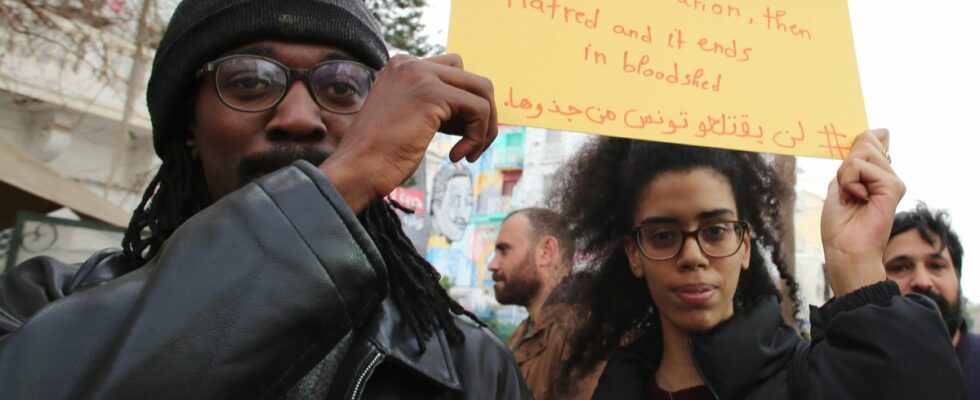About 300 Ivorians and Malians began to be repatriated from Tunisia on Saturday to escape the attacks and hostility to which they are subjected after a violent speech by President Kais Saied against sub-Saharan irregular migrants. On February 21, Kaïs Saied claimed that the presence in Tunisia of illegal immigrants from sub-Saharan African countries was a source of “violence and crime” and was part of a “criminal enterprise” aimed at “changing the demographic composition”. from the country.
This speech, condemned by NGOs as “racist and hateful”, caused an outcry in Tunisia where sub-Saharans have since reported an upsurge in attacks against them and have rushed by the dozens to their embassies to be repatriated. After a first flight bringing about fifty Guineans back to the country on Wednesday, Côte d’Ivoire and Mali are evacuating 300 of their nationals by plane on Saturday.
Students among the returnees
About “145 people are leaving this morning after having slept in hotels”, indicated Jean Bedel Gnabli, president of the Association of Ivorians active in Tunisia, contacted at the airport shortly before their takeoff. According to the Ivorian ambassador in Tunis, Ibrahim Sy Savané, “the number of candidates for return has reached 1,100”. A significant figure for the Ivorian community which, with at least 7,000 people, is the largest in sub-Saharan Africa in Tunisia, thanks to an entry visa exemption.
Some 30 Ivorian students, in a regular situation, are among the returnees. “They do not feel comfortable, some have been victims of racist acts, some are at the end of their studies, others have interrupted them”, specified by telephone Michaël Elie Bio Vamet, president of the Association. Ivorian students. “There are assaults almost every day, threats, or they are kicked out by their landlords, or physically assaulted,” he added.
A “surge of hatred”
Mali also chartered a plane to repatriate 150 people on the orders of junta leader Assimi Goita, who gave “very firm instructions to deal” with the plight of his compatriots, a Malian diplomat in Tunis said, under cover of anonymity. Their plane was to take off at 9 a.m. Guineans who returned on the very first repatriation flight on Wednesday told AFP of a “surge of hatred” after Kaïs Saied’s speech, and of several days of “nightmare”.
A good number of the 21,000 nationals of sub-Saharan Africa officially registered in Tunisia, most of them in an irregular situation, lost their jobs – generally informal – and their homes overnight, as a result of the campaign against illegal immigrants. Several dozen were arrested during police checks, and some are still in detention. Others have testified to NGOs about the existence of “militias” that hunt them down, beat them and rob them. This situation caused the influx of dozens of people to their embassies, in particular Côte d’Ivoire and Mali, which decided to accommodate up to a hundred in emergency.
Tunisia wants to speed up repatriations
Other migrants, even more vulnerable because they come from countries without an embassy in Tunis, have joined an improvised camp in front of the headquarters of the International Office for Migration (IOM), where they sleep in the cold and unsanitary conditions. To speed up repatriations, Tunisia would have given up claiming penalties from people in an irregular situation (80 dinars, 25 euros per month of illegal stay) which, for some, exceeded 1,000 euros, according to the Malian diplomat.
Among the candidates for return, there are dozens of students, sometimes from wealthy families, enrolled in universities and training centers created under the cooperation between Tunisia and their countries. Frightened, many returned on their own throughout the week, according to one of their representatives. The Association of Foreign Students AESAT documented the attack on February 26 of “four Ivorian students leaving their university residence” and “a Gabonese student in front of her home”. The day after Kaïs Saied’s speech, AESAT had instructed sub-Saharan students “to stay at home”, asking them not to “go to class”. A directive extended at least until March 6.

